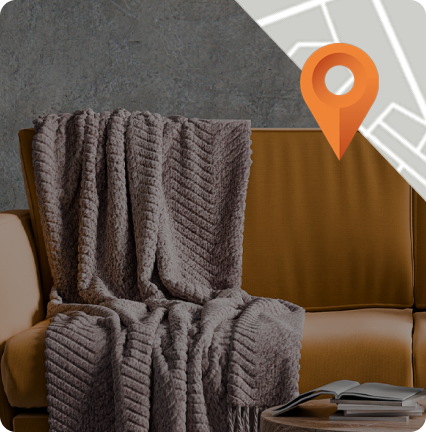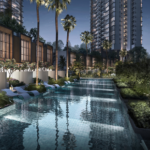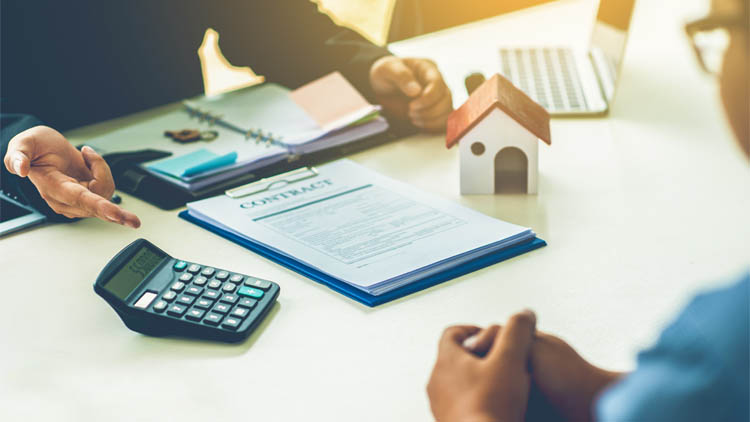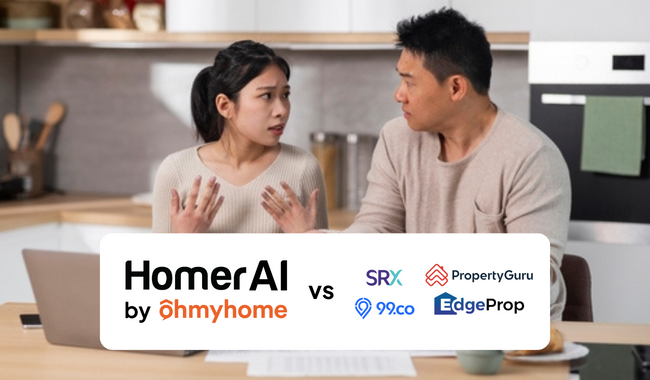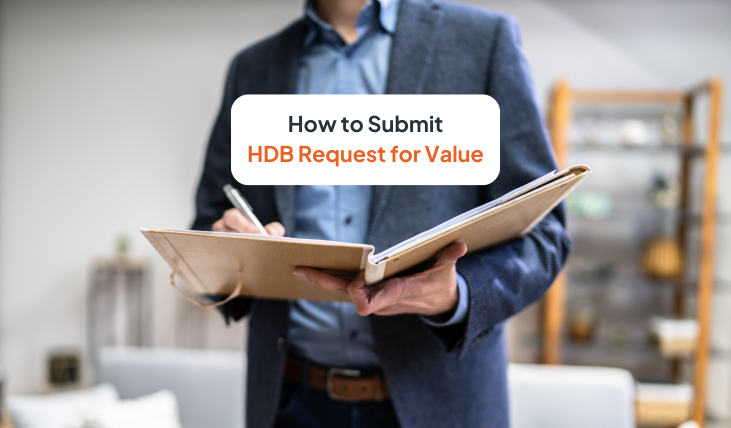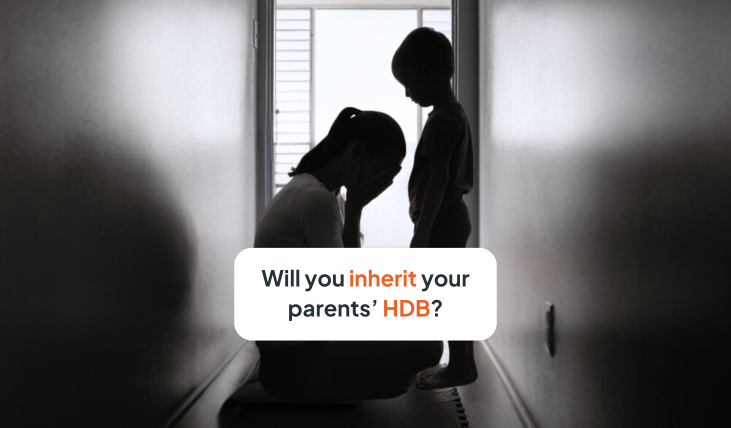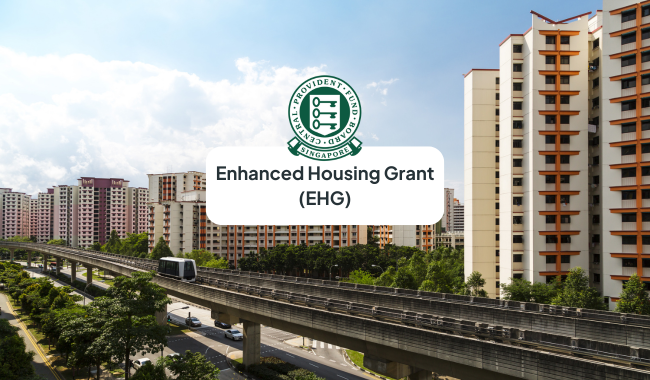Editor’s Note: This post was originally published in May 2022 and has been completely revamped and updated to reflect the changes made to the ABSD rates as announced by the government on 26 April 2023.
Most Singaporeans own at least one property, giving Singapore one of the highest rates of homeownership in the world. It is also not uncommon for homeowners to buy more than one property as a form of investment, generating rental income from it.
Contents
3 factors to consider before buying a second property
But before buying your second home, consider these three factors first: eligibility, affordability and intent.
1. Eligibility
Remember the Minimum Occupancy Period (MOP)
Those who already own a HDB flat cannot buy a second property until they meet the five-year MOP. The MOP applies to both new and resale flats in Singapore.
Keep in mind that Executive Condominiums (EC) are only privatised after the 10th year. Until then, ECs are still HDB properties and hence bound by such rules as the MOP.
2. Affordability
How much can you borrow for your second property?
Banks assess your loan eligibility based mainly on these two criteria, which are:
1. Total debt servicing ratio (TDSR)
The TDSR states that you should not have more than 55% of your gross monthly salary devoted to servicing your loans in a month. This can include all types of debt, including car, home, personal, and even student loans.
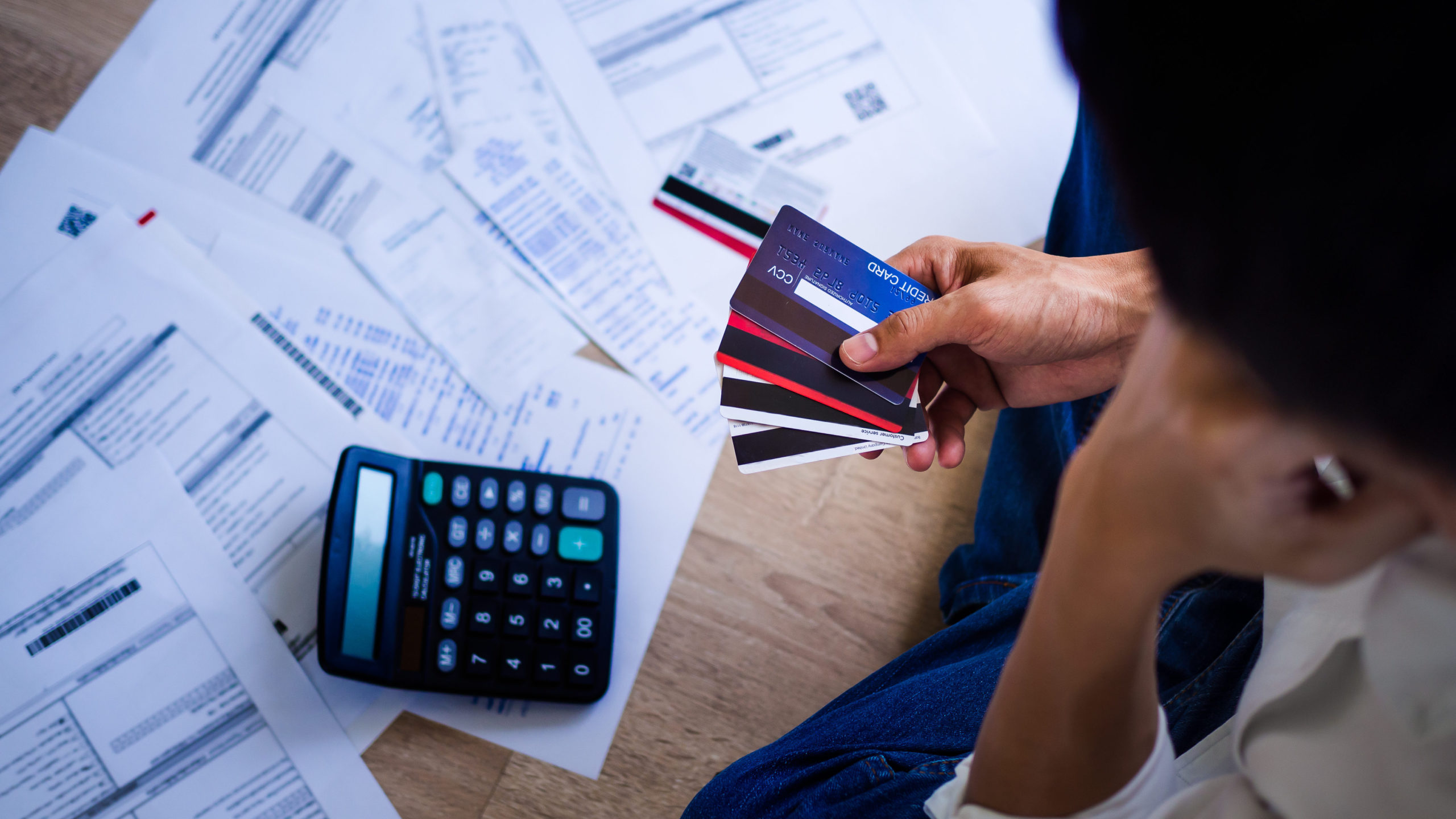
In the case of loans taken to purchase HDB flats, the monthly repayment instalment cannot exceed 30% of a borrower’s gross monthly income.
2. Loan-to-value (LTV) ratio
In Singapore, HDB loans have a maximum LTV of 85%, whereas for bank loans it is 75%. However, HDB and banks are not required to offer you the maximum LTV. They can choose to lower it if they think it would be more appropriate. Age and the existing number of properties also play a part in the LTV ratio.
The minimum cash down payment
For your second property, you will need to pay up to 25% of your property’s down payment in cash. This will be measured against the property’s valuation limit, which is determined by the property value or purchase price, whichever is lower and any excess above the valuation.
The Additional Buyer’s Stamp Duty (ABSD)
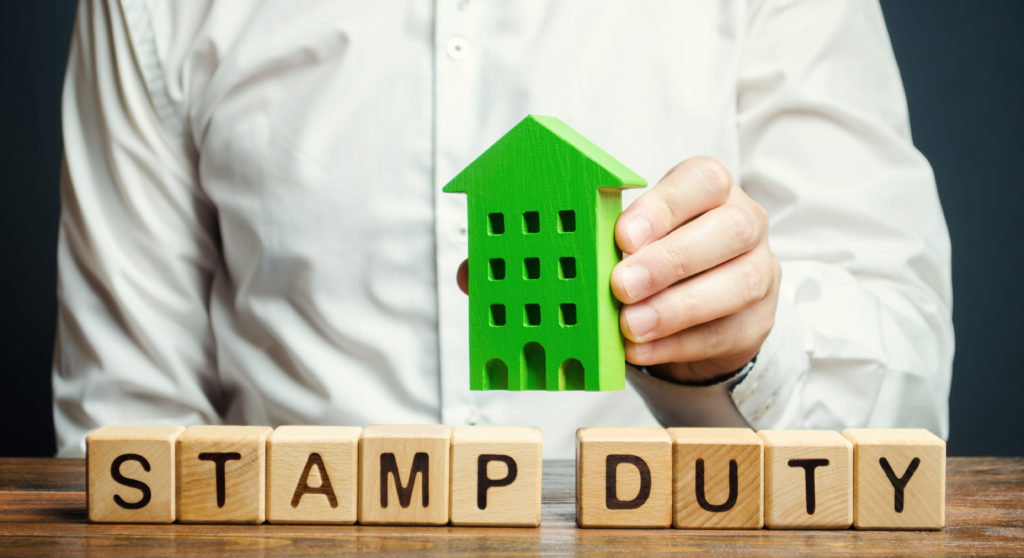
In addition, Singaporeans will have to pay a 20% ABSD on either the property value or purchase price of a second residential property, whichever is higher. Permanent Residents (PR) will pay 30% ABSD for a second residential property and foreigners will cap off at 60% after April 2023.
Below are the various ABSD rates for buyers of different profiles and depending on the number of properties they own:
| Citizen | Buying 1st Residential Property | Buying 2nd Residential Property | Buying 3rd and Subsequent Residential Property |
|---|---|---|---|
| Singapore Citizen (SC) | 0% (no change) | 20% (up from 17%) | 30% (up from 25%) |
| Singapore Permanent Resident (SPR) | 5% (no change) | 30% (up from 25%) | 35% (up from 30%) |
| Foreigners buying any residential properties | 60% (up from 30%) | 60% (up from 30%) | 60% (up from 30%) |
| Entities buying any residential properties | 65% (up from 35%) | 65% (up from 35%) | 65% (up from 35%) |
New laws from 9 May 2022 with regard to residential properties transferred into a living trust:
Additional Buyer’s Stamp Duty (ABSD) of 65% will now apply on any transfer of residential property into a living trust. ABSD will be payable even if there is no identifiable beneficial owner at the time the residential property is transferred into a trust. So this new change closes a loophole. This ABSD (Trust) is to be paid upfront when the transfer is made.
Property Tax
During the Singapore Budget on February 18, 2022, the government announced that the Property taxes rates for both owner-occupied and non-owner-occupied residential properties will be revised in 2 steps starting from 2023.
Rates for owner-occupied homes with an annual value in excess of $30,000 will be raised – ranging from 5 to 23 percent in 2023, to 6 to 32 percent in 2024.
For non-owner-occupied homes, which includes investment properties – taxes will be hiked across the board: from the current 10-20 percent, to 11-27 percent in 2023 and 12-36 percent in 2024.
Using CPF for your second property
CPF can be used to buy a second property. However, if you have already used your CPF for your first property, you may only use your CPF Ordinary Account savings for your second property after setting aside the Basic Retirement Sum (BRS).
However, there is a limit on the amount of CPF savings you can use to buy private residential properties at 120% of the valuation limit. Once you have reached the Withdrawal Limit, you will not be allowed to use further CPF savings, and you will need to pay the remaining home loan in cash.
3. Intent
Decide whether the new property will be an investment or a second home
Do you plan on using the second property for an investment or as a primary residence for your family members? This is because the type of usage will impact your property tax rate. Currently, the property tax for owner-occupied residential properties ranges from 0% to 16% on a tiered basis, while properties that are rented out have a tax of between 10% to 20% of annual value. The annual value is determined by IRAS and is based on how much rental income the property could generate per year.
If the second property is an investment, ensure there is a clear exit plan for the asset
It would be wise to develop a strategy for the second property, considering factors such as: how long you intend to hold it, when and how you plan to cut losses if it becomes a liability due to low rental income, and what kind of capital gains to expect.
Buying a second property in Singapore just to “make more money” is not a sound plan. You should work out the potential rental yield and capital appreciation, and determine the probable Return On Investment.
Is now the right time to buy a second property?
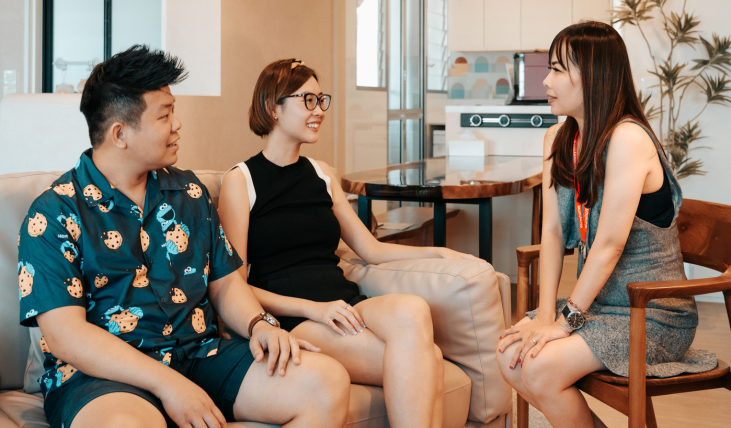
Get professional advice on whether it’s a good time to buy a second home, chat with our Super Agents. Chat with us at the bottom, right-hand corner of the screen. Or WhatsApp us to get in touch.
Can’t find the right property? Let us match you with your ideal unit
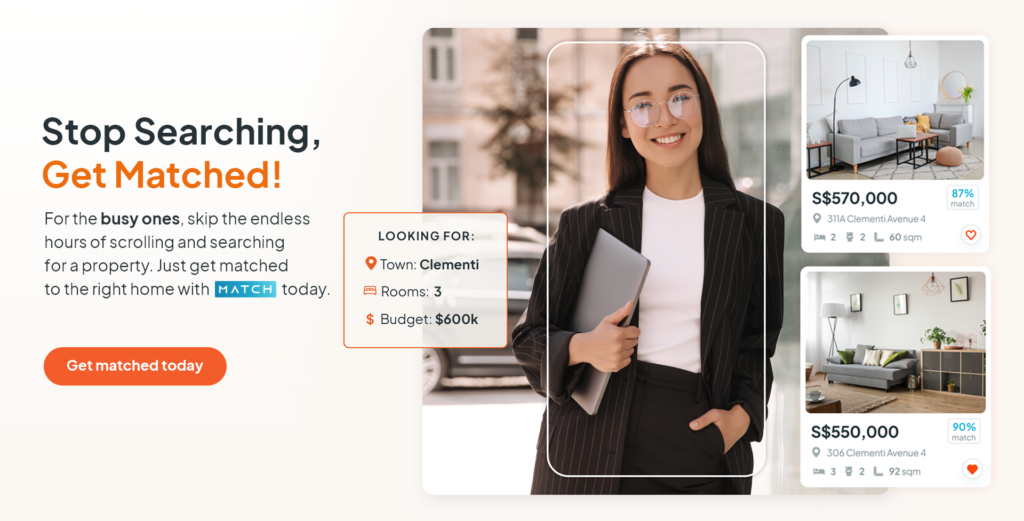
Let Ohmyhome’s smart data-matching technology MATCH you with the right home, according to your specific needs. Submit your preferences to us and our algorithm will filter all our available listings based on those, and we’ll WhatsApp them to you once we find a match. We’ll also send you relevant content that you can use for your research and inform your home buying decision, so you no longer have to spend hours searching online for the information that you need.
Frequently asked questions before buying a second property
1) Can I manage the downpayment if I have an outstanding home loan?
Yes, buying a second property requires a substantial cash outlay. So it may be a good idea to have ample savings before setting out to get one. Speak to Ohmyhome’s agents for a comprehensive evaluation.
2) What is the most suitable property for rental?
The type of property will determine the type of tenant you attract. For example, a shoebox unit on Orchard Road will probably attract single, affluent expats. If you’re looking to rent out your property, you can speak to Ohmyhome’s agents for a comprehensive evaluation of all the available options.
3) Will the government decide to build a skyscraper in the future next to my second property?
You may check the URA’s Master Plan which is the statutory land use plan that guides Singapore’s development in the medium term over the next 10 to 15 years.
4) Is it worth getting a second property near good schools?
Homes within a 2 km radius of a prestigious primary school can command large price premiums due to their demand. Speak to Ohmyhome’s agents for more information now.





